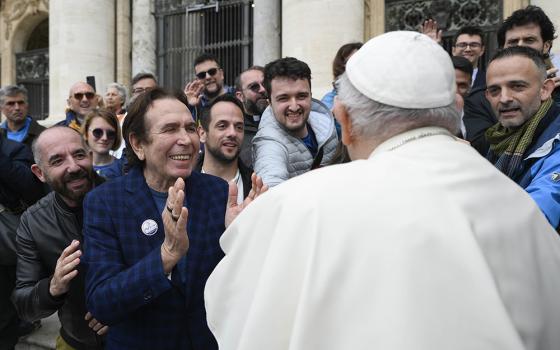Writers often do not get to pen their own headlines, so I cannot fault George Weigel for referring to Catholic progressives as “Churchmice” in an article posted at the National Review. Whoever did come up with that title should reflect upon the often ugly things that happen when fellow human beings are compared to vermin. But, this Churchmouse must respond to Mr. Weigel’s article not least because he mentions me by name.
It is difficult to know what to make of Weigel’s arguments, such as they are. At one point he condemns the “hoary ‘liberal/conservative’ hermeneutic of the Council’s history” but this is a strange condemnation coming, as it does, in an article that explicitly and repeatedly indulged in a “hoary liberal/conservative hermeneutic.”
I am also surprised to read this: “Then came the election of the progressives’ bête noire, Joseph Ratzinger, as Pope Benedict XVI.” Funny. It was not me who, within a year of that election, was wringing my hands, speaking of the “palpable uneasiness” about the direction of Benedict’s pontificate among those who had celebrated it. That would have been Weigel’s old chum, the late Father Richard John Neuhaus
But, where does Weigel get off writing this: “The irony of men such as the former editor of America, Fr. Thomas Reese, S.J., Washington Post columnist E. J. Dionne Jr., and National Catholic Reporter blogger Michael Sean Winters promoting a notion of papal teaching authority more expansive than any imagined by the most wild-eyed traditionalist will not be lost on cognoscenti of ecclesiastical intrigue.” Weigel is concerned that we – and I am delighted and honored to be lumped together with Reese and Dionne – have invested too much infallibility into the “Note” on the financial crisis issued by the Pontifical Council for Justice and Peace.
First, I did not invest that “Note” with more authority than it can bear. In fact, I did not engage at all in the effort Weigel has championed in the last week of parsing the relative significance of various Vatican documents. I suppose he thinks such distinctions are important when he encounters a text he does not like, and a certain facility at deploying distinctions such as this are a proud accomplishment for one, such as Weigel, who fashions himself an “insider.” He is keen to note, too, that he had a pleasant, 90-minute conversation last year with Cardinal Peter Turkson, President of the Pontifical Council for Justice and Peace, who authored the Note.
Second, while I cannot speak for Father Reese or Mr. Dionne, where and when have I ever questioned the authority of the Holy Father or the bishops to teach the Catholic faith? I do not indulge in the hagiography of Pope John Paul II that has made Weigel a bunch of money. I remain deeply concerned that Pope John Paul II was a bad judge of human character, and that this failing cost the Church dearly. Cardinals Sodano and Dziwicz and Father Maciel come to mind. But, I have never questioned the basic content of his magisterial teaching. I have my issues with John Paul II’s “Theology of the Body” but that never made it into magisterial teaching, did it?
Most importantly, Weigel again fails to recognize the most important thing about the Pontifical Council’s Note on the financial crisis, namely, that is was firmly and explicitly grounded in a long line of papal and conciliar teachings. This was certainly the context in which it was presented and the context in which I wrote about it when it was released. Check for yourselves here. Weigel can’t go down that road because it offers so little to confirm his neo-con proclivities. But, how, precisely, Mr. Weigel, does the Note differ from Caritas in Veritate in its worldview? And, remember, Weigel has some disparaging things to say about that encyclical too.
It is almost sad to see Weigel thrusting his little fists towards me, Reese and Dionne. His arguments are strained. They have the flavor of one who was once an insider and is no more. He lets us know that he had a ninety minute chat with Cardinal Turkson but he doesn’t disclose what he learned from the encounter. Evidently nothing. Weigel now seems content to put the lazy back into laissez-faire and call it a day.




